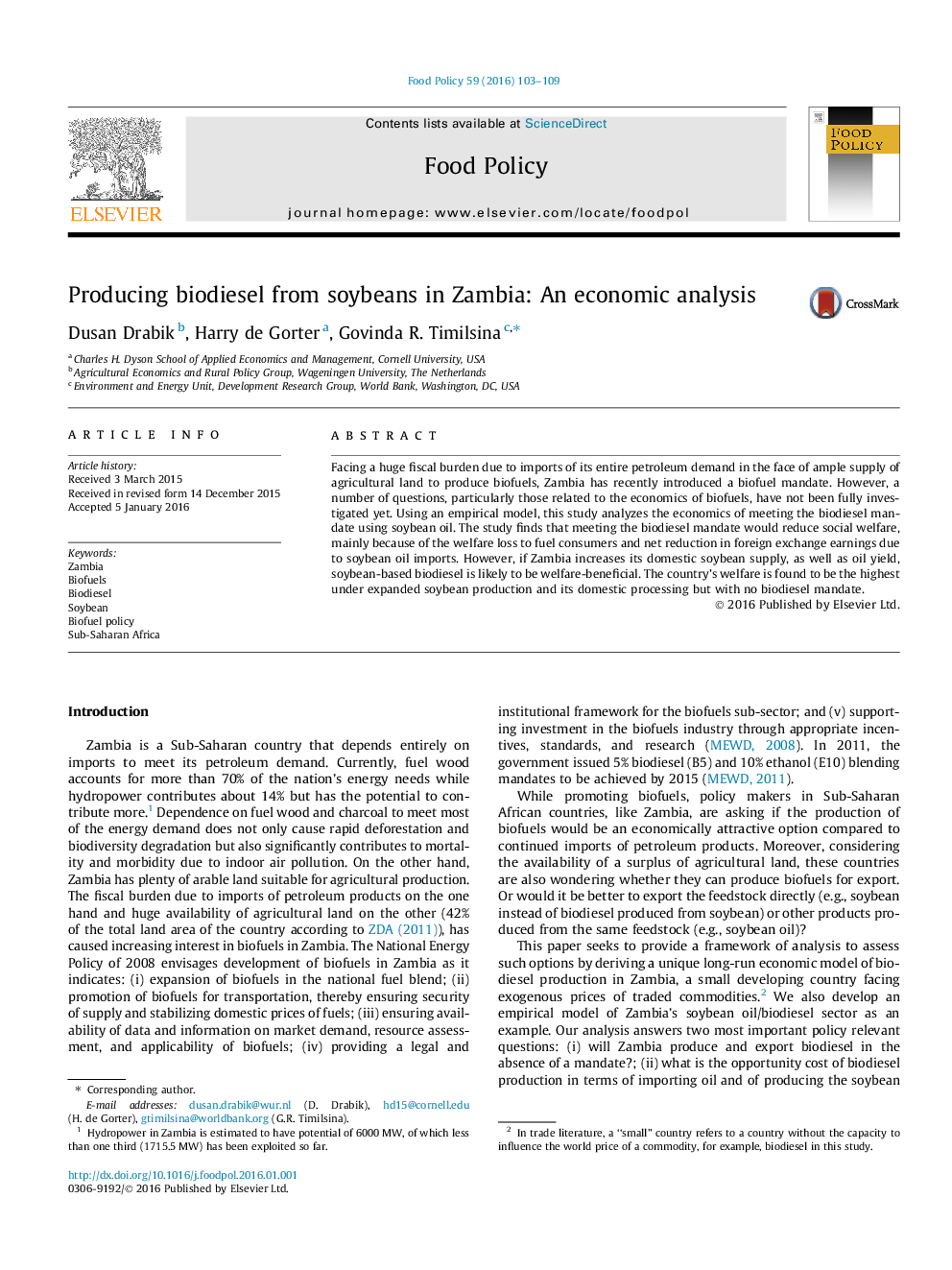| Article ID | Journal | Published Year | Pages | File Type |
|---|---|---|---|---|
| 5070285 | Food Policy | 2016 | 7 Pages |
Abstract
Facing a huge fiscal burden due to imports of its entire petroleum demand in the face of ample supply of agricultural land to produce biofuels, Zambia has recently introduced a biofuel mandate. However, a number of questions, particularly those related to the economics of biofuels, have not been fully investigated yet. Using an empirical model, this study analyzes the economics of meeting the biodiesel mandate using soybean oil. The study finds that meeting the biodiesel mandate would reduce social welfare, mainly because of the welfare loss to fuel consumers and net reduction in foreign exchange earnings due to soybean oil imports. However, if Zambia increases its domestic soybean supply, as well as oil yield, soybean-based biodiesel is likely to be welfare-beneficial. The country's welfare is found to be the highest under expanded soybean production and its domestic processing but with no biodiesel mandate.
Related Topics
Life Sciences
Agricultural and Biological Sciences
Food Science
Authors
Dusan Drabik, Harry de Gorter, Govinda R. Timilsina,
